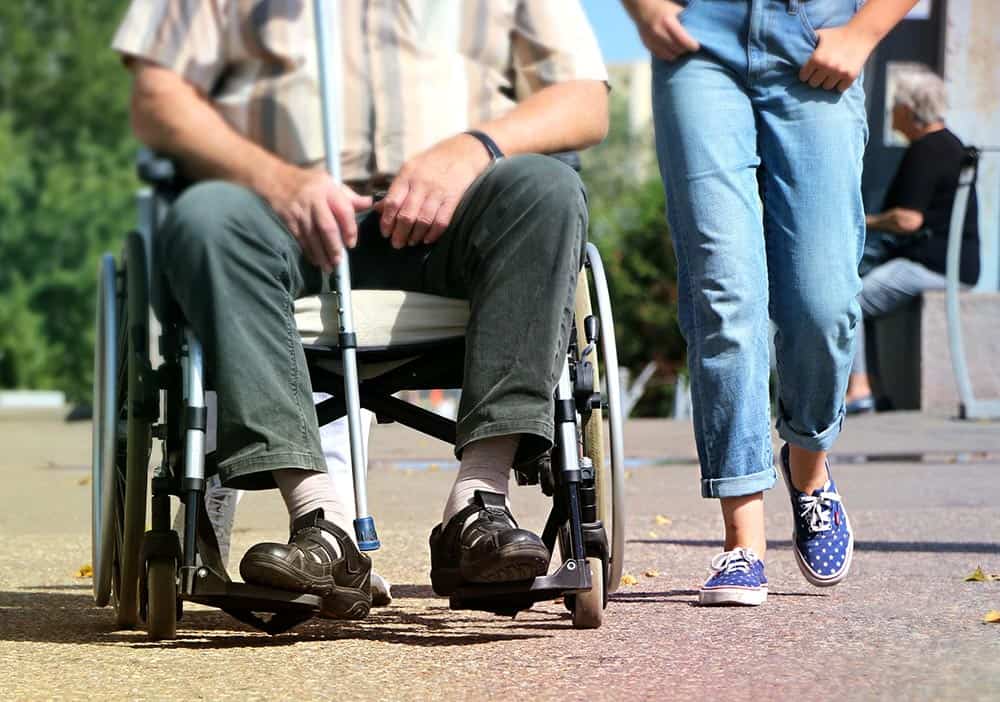Spring Statement 2022: Leaders disappointed that cost of living “crisis” will push more people into ill-health and increase pressure on NHS

Following Chancellor of the Exchequer Rishi Sunak’s delivery of the Spring Statement 2022 to Parliament on 23 March, leaders from across the assistive technology, disability, and health and social care sectors have responded.
The Health Foundation, NHS Confederation, Closomat, and Business Disability Forum have all weighed in on the statement.
From these organisations, the general consensus that the statement does not go far enough to protect the health of thousands of vulnerable people in the UK, which could have a knock-on effect for the assistive technology sector, as people may not be able to afford independent living equipment.
The Spring Statement 2022 brings together proposals to reduce and reform taxes in the UK. It was published in the global context of Vladimir Putin’s attack on Ukraine, which has created “significant uncertainty” in the global economy, according to the UK Government.
Some of the key points that the assistive technology sector should be aware of include allocating £25.3 million to install Changing Places facilities in public places and tourist attractions with large numbers of visitors; increasing the annual National Insurance Primary Threshold and Lower Profits Limit from £9,880 to £12,570; and reducing the basic rate of income tax to 19 percent.
Matthew Taylor, Chief Executive of the NHS Confederation, says that the cost of living “crisis” and soaring inflation will put thousands more into poverty and ill-health. He said that as poverty is one of the key drivers of poor health, this will have a knock-on impact on the NHS, which will add to the current record-high patient waiting lists.
Responding to the Spring Statement, Matthew commented: “Health leaders know only too well that the mounting cost-of-living is already having a huge impact on the lives of thousands of the most vulnerable people in our society who over the course of the coming year will be hit hardest.
“While the doubling of the household support fund for councils will help, this crisis coupled with soaring inflation will still push thousands more households into poverty, which we know is one of the key drivers of poor health. This will then have a domino effect on pressures facing the NHS as its teams work hard to clear the waiting list and respond to rising demand for healthcare services.
“Health leaders broadly welcomed the additional funding for health and social care in the Chancellor’s Budget last October and recognise the importance of putting this investment to best use but the world around us is very different now. With inflation hitting 6.2% in February – the fastest rise for 30 years – and as fuel, energy and food costs surge, this will have significant impact on the NHS, seeing it being forced to pay out more in its bills, equipment and the wages of bank and agency staff.
“This comes as the NHS is already operating with reduced capacity, very high bed occupancy, and 110,000 vacancies, which will compound how much its services can identify further efficiency gains.”
Jo Bibby, Director of Health at the Health Foundation, has similarly expressed disappointment that the Spring Statement 2022 does not go far enough to protect vulnerable families.
“A government that truly valued the nation’s health would have gone further today to protect the most vulnerable families from this latest economic shock,” Jo said. “The increase to National Insurance thresholds is significant but fails to target the poorest households. There has been no action on benefits, while the additional £500m for the Household Support Fund falls well short of what is needed.
“Higher inflation will also erode planned spending on public services which support health. The Government should be investing more to protect people in the here-and-now, as well as building greater resilience against future threats to our health.”
In addition, the Business Disability Forum (BDF) is “disappointed” that the statement does not address the disproportionate impact of rising living costs on disabled people.
This could put disabled people off getting important adaptations or purchasing assistive technologies due to price pressures, potentially impacting clients’ independence in the long term.
Angela Matthews, BDF Head of Policy, said: “Many disabled people experience higher living costs than non-disabled people simply because they have to spend more money to live near-equal lives. This has always included costs associated with medication, adaptions, and transport.
“Disabled people tell us that they are, now, also having to use their own money to get access to urgent procedures and treatments to ease pain, such as lymphatic drainage and physiotherapy.
“The rise in energy prices is also particularly affecting disabled people. People who rely on electrical provision twenty-four hours a day, seven days a week, for breathing equipment, for example, are being bit hit hard by rising energy costs. The Government has already arranged financial support for some groups, but there has been no mention of this being matched for disabled people.”
BDF is now calling on the UK Government to urgently address these disproportionate living costs on disabled people.
In contrast to some of the more negative responses to the Spring Statement, accessible bathroom specialist Closomat has welcomed the Changing Places funding announcement.
The firm has further highlighted the importance of registering and listing facilities on the Changing Places map (https://www.changing-places.org/find), so that disabled people can plan their trips.
Claire Haymes, Changing Places Project Manager at Closomat, which installs Changing Places facilities, commented: “Whether incorporating a Changing Places into a new build project, or adding one to an existing building, it is so important to choose a contractor with the right knowledge and experience.
“Following the best practice technical standard of BS8300:2018, not only ensures your facility meet the needs of as many disabled people as possible, but also that a facility can be registered and listed on the Changing Places map. With so few Changing Places still in the UK, knowing where they are available is critical.”

